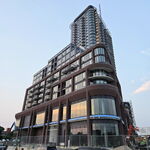Teresa Fusco thought she had done everything that she needed to do to sail comfortably into her golden years. She owned a condominium unit in Reading, Pa., with an appraised valued of $101,000, and she had a rainy-day fund in case her health failed.
So she was shocked when earlier this year she suddenly found herself with no home and a wrecked credit score after a company that bought most of the condo complex sold her unit for less than half of what she thought it was worth. To make matters worse, Fusco is still on the hook for the $71,000 mortgage on the property that she no longer owns.
"As a single woman, 56 years old, who works hard and was looking to retire in that place, I had everything set up," Fusco said.
Her plans -- and those of 10 other homeowners who say they've had their properties stolen from them -- started to unravel when Deer Path Woods, the condo complex where they lived, went into foreclosure last fall. Fusco's unit was one of 11 that were individually owned; another 97 were rental units. When the owner of the rental units failed to pay his mortgage, a company under the control of local developer Kevin Timochenko snapped all of them up for $7,200 at a foreclosure auction.
The purchase gave Timochenko's company, Water Polo I, LP, control of nearly 90 percent of the units of the complex, arming it with enough votes to dictate condominium association policy. Soon after the purchase, Fusco and her fellow homeowners received a letter informing them that, come January, condo association fees would more than double, to $450 a month. The increase, according to a representative of Water Polo I, was to pay for upgrades to the complex that the tenants had demanded.
"We were all freaking out because we couldn't afford that in addition to the mortgages that we were paying," said former unit owner Adrienne Dawkins (pictured with her children below), who took out a $102,500 mortgage to buy her unit at Deer Path in 2007, and has since been forced to leave her home along with her three children. "We agreed to pay $200 when we bought our homes."
Anxiety over raised assessment fees paled in comparison to what happened next: The new condo owner called a vote to terminate the condo association altogether.
From Condos to Rentals
Dissolving a condominium organization isn't unusual. Termination reduces management costs, and in a depressed market makes it easier for homeowners to sell their units. It's often easier to find a buyer for an entire condominium, and a bank doesn't have to approve the sale. After termination, units of the dissolved condominium sell in bulk and are then typically converted into an apartment complex owned by a single developer.
"By buying the 89 percent of the units at the foreclosure sale last year, [Timochenko] acquired all of the units and all of the votes he needed to approve a termination," explains Tom Beaver, an attorney whom some of the unit owners turned to for help.
Here's the rub: Under Section 3220 of the Pennsylvania Uniform Condominium Act, when a condominium is dissolved, the condo association can put the entire condominium up for sale, regardless of who owns the individual units. So in acquiring control of the condo association, Water Polo I also gained the right to sell Fusco's home.
In April 2012, Deer Path Woods was put up for auction. Beaver, who attended the auction, said it sold for $3.425 million.
The buyer? Another company controlled by Kevin Timochenko. Along with the 97 rental units, the sale included the 11 owner-occupied apartments. The new buyer, Hoya I, LP, then converted the condominium into an all-rental apartment complex, now known as Spring Valley.
"The effect of terminating the condominium was to divest all of the unit owners of their real estate interest," Beaver said, adding that rentals are especially profitable for developers in today's market of high rental rates and diminished home values.
A Tale of Two Appraisals
It might not have been so bad if Fusco and the other owners got paid what they believed their homes were worth. Pennsylvania law states that in the event of a condominium sale, unit owners have the right to the fair market value of their homes as determined by an appraiser selected by the condominium association. That means that even though Fusco's unit had been valued at $101,000 by an independent appraiser earlier this year, she would get only the amount determined by the appraiser hired by the condominium association -- in this case, Water Polo I.
And the difference was shocking. After the sale, the 11 unit owners received letters saying that they or their lenders would each receive between $31,000 and $34,219 for the sale of their units. The owners were still responsible for the remaining balances on their mortgages, though. For Fusco, who took out a $94,025 loan in 2008 to buy her apartment, that means she's on the hook for about $40,000 even after her lender receives money from the sale.
Dawkins is in even more trouble: She owes $98,000 on her mortgage, making her liable for $60,000 even if her lender gets the maximum for the sale of her unit.
"[Water Polo I] really screwed her on this by not offering full market value with a legal industry appraisal and credible comparable condos," said Fusco's appraiser, Michael Robinson. "It was sad because she has a liability for the balance of her mortgage now."
So how is it that two appraisals on the same unit at around the same time could differ so dramatically?
A representative for Water Polo I suggests that the higher appraisals came when the units were treated as part of the now-dissolved condominium association, rather than simply as units of an apartment complex.
That doesn't hold water with George Schwambach, a roofer who owned his unit outright. Schwambach said that an independent appraiser valued his unit at $90,000 earlier this year.
"I'm losing sleep over this. This is crazy," Schwambach (pictured at left) said of the figure determined by the condominium association's appraiser. "My attorney is telling me we can't do nothing. It raises my blood pressure every time I think about it." Schwambach added that he had been renting his unit to a tenant, but the tenant, who was familiar with Timochenko, promptly vacated when he learned of the developer's connection to management.
That may not be surprising, considering a run-in that Timochenko's had with the law. As president of Metropolitan Management Group, which manages more than 10 apartment complexes in Berks County, Pa. including Deer Path's successor, Spring Valley, Timochenko was sentenced to 15 months in prison and fined $75,000 in 2006 for stealing gas from a utility company that served his apartments. The landlord's crime at one point put several tenants at risk of eviction by the Department of Housing and Urban Development, even though they hadn't participated in the scheme.
No Legal Recourse?
Still reeling from the loss of their units, the former owners have so far been told that they have little, if any, legal recourse. Everything that the companies controlled by Timochenko have done is perfectly legal, Beaver said, and the only way the unit owners could possibly get more for their homes would be to go to court to contest the appraiser's determination.
But that would cost them thousands of dollars, Beaver said, and since he has found no evidence of malfeasance, it might not result in relief for the former homeowners anyway.
"I checked into the situation and I came back and said, really, there was nothing I could do," Beaver said.
Pennsylvania State Sen. Judith L. Schwank, after receiving a desperate letter from Fusco, said her hands are tied as well.
"Frankly, I am astounded by the situation, and I will look into what must be done to change the law to prevent such an outrage in the future," Schwank, who represents the 11th District, wrote to Fusco. "Unfortunately, as you acknowledge in your letter, a future change to the law probably would not affect your rights."
Squatting in Their Own Homes
After receiving a letter in April of this year telling her to vacate or sign a lease agreement with Metropolitan Management Group, which manages the apartment complex for Hoya I, Fusco left her home. She now rents in Minersville, Pa.
Dawkins held out for more than a month after receiving the same letter, but left in late May once another letter arrived, this one informing her that Metropolitan Management Group was suing her.
But not everyone is going quietly.
David Wendell (pictured right), who said that he owes $61,500 in principal on the Deer Path unit that he purchased in 2008, refuses to vacate his property unless his lender receives a much larger amount for the sale of his home.
"I did not have a 'for sale' sign on my door," he said. "I want to pay off my mortgage, so I can have money to put down on a new home. I had everything planned. I'm going berserk."
In March, he called his lender, Nationstar Mortgage. A representative there informed him that he remained responsible for his mortgage.
"She was very shocked. She was like, 'These type of things don't happen,' " he said of her reaction to his situation.
Indeed, what happened to Deer Path is foreign to some other industry observers as well. The Fair Housing Council for the Harrisburg region said that it has never heard of a case like Deer Path's.
A lawyer for Metropolitan Management Group, Nicole Plank, said several lenders have agreed to forgive the debt on some of the other units acquired by Timochenko's company. She said that those who remain saddled with their mortgages should seek legal counsel in order to persuade their lenders to forgive their outstanding debt.
She adds that Timochenko isn't responsible for all of the heartache that has transpired at Deer Path over the last year. "Everybody has a misconception that this is an individual," she said. "These are businesses and entities that are acting in concert with the law."




